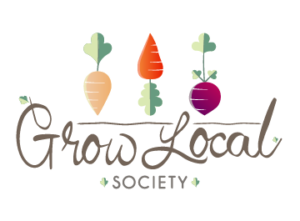 Shane and Emma of Aslan Organics showed up in B.C. in 2010 after accepting a work offer on Vancouver Island with no intention of farming but quickly became eager to start their own food production.
Shane and Emma of Aslan Organics showed up in B.C. in 2010 after accepting a work offer on Vancouver Island with no intention of farming but quickly became eager to start their own food production.
In our first spring, we hastened the building of three raised beds in our small pie-shaped corner lot in an urban setting. We quickly fell in love with the dirt and produce we were making, and the garden just continued to grow.
In 2014 they moved to the Yarrow EcoVillage near Cultus Lake where within one year, they had a quarter acre and 20 laying hens. Now a 1.2 acres organic farm, with roughly 75 birds, customers will find plenty of fresh produce and eggs at market.
Our farm is a nod to the lion character in Chronicles of Narnia, Aslan, who represents the main framework for how we see ourselves as farmers: Earth Keepers; our Christian beliefs have significantly shaped our creation care modus operandi.
 Aslan Organics was one of only twelve farms selected to receive a scholarship into J.M Fortier’s “The Market Gardners Master Class.” This has allowed Emma and Shane to go more in depth about how they plan and create success on their farm.
Aslan Organics was one of only twelve farms selected to receive a scholarship into J.M Fortier’s “The Market Gardners Master Class.” This has allowed Emma and Shane to go more in depth about how they plan and create success on their farm.
We grow joyfully good food: our farm is a sanctuary for those looking for quiet; our farm is small for those looking to experience simplicity; our farm is efficient for those looking to understand how it’s possible to make a living at organic vegetable farming. We aren’t just producers, we love what we do and we want you to love it too.
Growing organic is essential to Aslan Organics. They reference that for centuries the earth has provided an abundance of crop without the use of chemicals. Living and farming in the Yarrow EcoVillage they are continuously working together with their community and therefore directly impacted by these relationships.
While we sometimes wish we could just eliminate all the aphids, they too have a purpose in the greater ecological systems. It may not always be easy–in fact challenge is often a descriptor of progress because the community needs to agree (we function under consensus)–but we are continually becoming better versions of ourselves because of it.
Shane and Emma are not just producers, they love what they do and they want customers to love it too. It is their belief that the most important aspect of knowing must be our food; to know what we are consuming.
If we become disconnected from our food, we become disconnected from the Earth. If we disconnect ourselves from the Earth, our care and awareness for Mother Nature becomes obsolete, and could prove dangerous to how we treat the only planet that has (thus far) proven to support human life.
They want people to know their farm is a sanctuary for those looking for quiet and small for those looking to experience simplicity.
Our farm is efficient for those looking to understand how it’s possible to make a living at organic vegetable farming.
 Although their methods are traditional and wholesome, Emma and Shane have brought their farm into the 21st century through the use of social media. They believe it is an opportunity for everyone to get a sense of what they up to, both professionally on the farm, but also small snippets of insight into their lives.
Although their methods are traditional and wholesome, Emma and Shane have brought their farm into the 21st century through the use of social media. They believe it is an opportunity for everyone to get a sense of what they up to, both professionally on the farm, but also small snippets of insight into their lives.
We believe that one of the best benefits to being “local” is knowing more about the people, something I would argue is inherent to the human condition: We all long for rich community experiences. For us, this farm–and you as our customer–is quickly taking shape as our rich community. We thank you for your support.
To grow a greater range of produce Aslan Organics has dipped it’s feet into greenhouses. As they are significantly warmer, plants can grow faster and thus lengthening the window of production.
We spend a significant amount of time ensuring the sanitization of our greenhouse (frequent weeding, eliminated any diseased plants, frequent browsing for predatory pests) because it’s crucial to the success of our operation.
Be sure to stop by Aslan Organics when coming to market as you may find a veggie you haven’t heard of, like the Hakurei Turnip! A favourite of customers it typically sells out within the first few hours of market.
